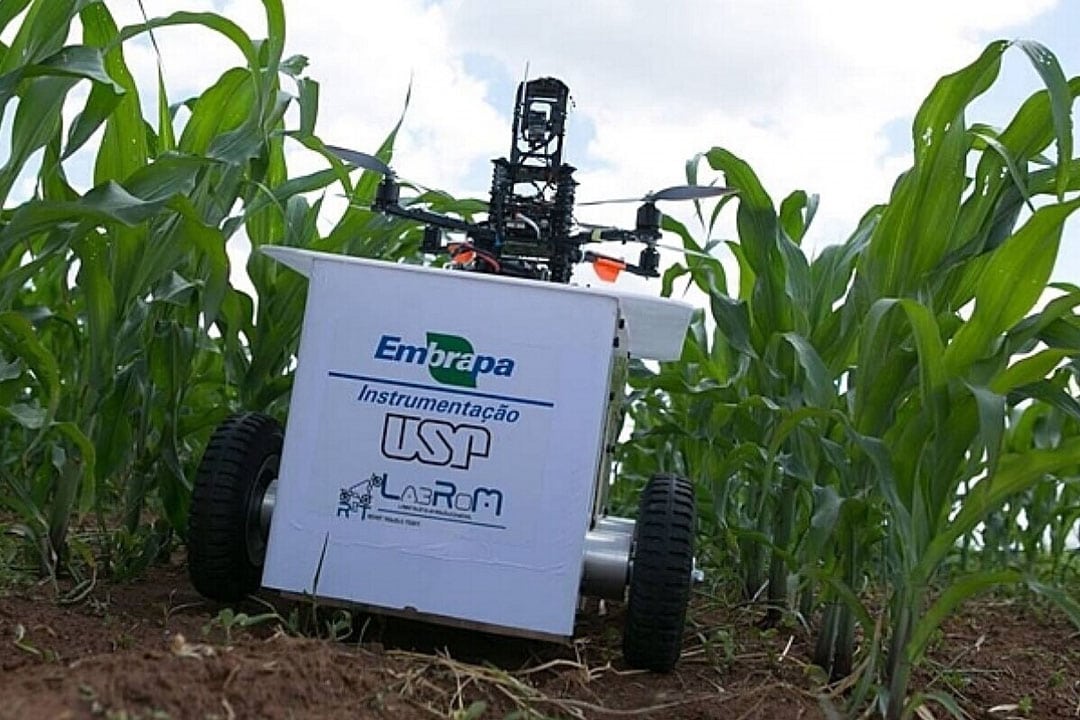Brazilian robot monitors soy and cotton autonomously

The equipment distinguishes plants from weeds while avoiding soil compaction
A group of researchers from PUC of Rio de Janeiro, in Brazil, presented an agricultural robot to map the growth and germination performance of plants and identify pests in soybean and cotton plantations.
The new prototype uses artificial intelligence (AI) to monitor crops, distinguish effective crops from weeds and move between rows autonomously. Last April the robot went for testing in the field after months of work.
Professors from the Department of Electrical Engineering carried out the project in partnership with the start-up Solinftec and Embrapa (Brazilian Agricultural Research Corporation).
Cameras and GPS
With a camera allocated into its structure, the agricultural robot distinguishes soy or cotton from other surrounding vegetation, in addition, to classify out different types of infestation. Thus, the usage of herbicides becomes more assertive and cheaper.
For effective performance, the robot receives visual and georeferenced information about plots of crops and calculates all its movements over the area. This is possible due to a combined system of cameras and GPS.
The robot does not need professionals for operation in the field and also protects the soil, avoiding compaction, because of its light structure.
Team of students and professors
The team of researchers has three doctoral students, five master’s students, two undergraduate students and is coordinated by professors Karla Figueiredo, Marley Vellasco, and Wouter Caarls, in addition to Prof. Antonio Leite, ex-DEE and currently a professor in Norway.
Text continues underneath image

This is one of the first Brazilian robots for agricultural activities. Previously, Embrapa Instrumentation had built Mirã 1 and Mirã 2, which perform crop soil analysis using the laser Libs, which is the same laser Nasa uses for expeditions on Mars.
Join 17,000+ subscribers
Subscribe to our newsletter to stay updated about all the need-to-know content in the agricultural sector, two times a week.



